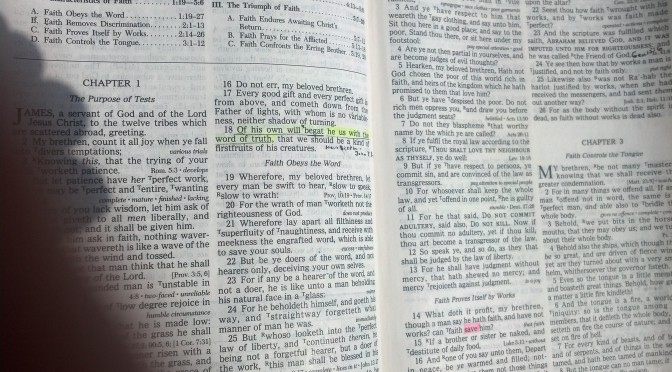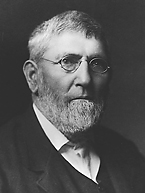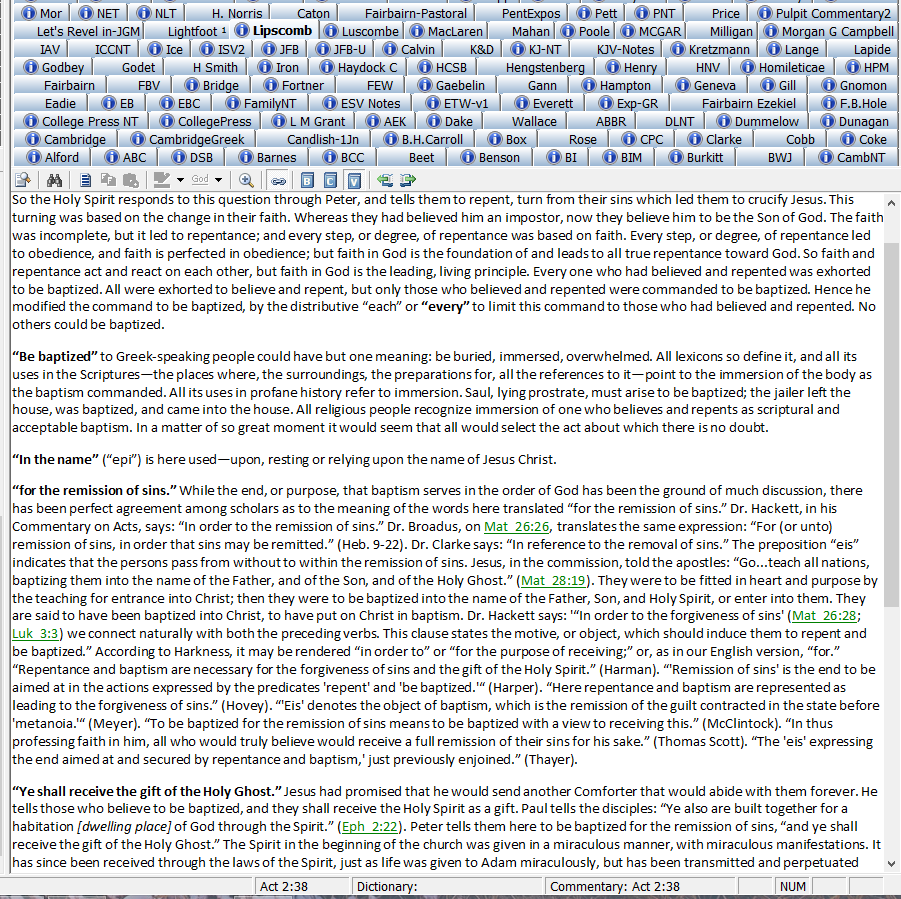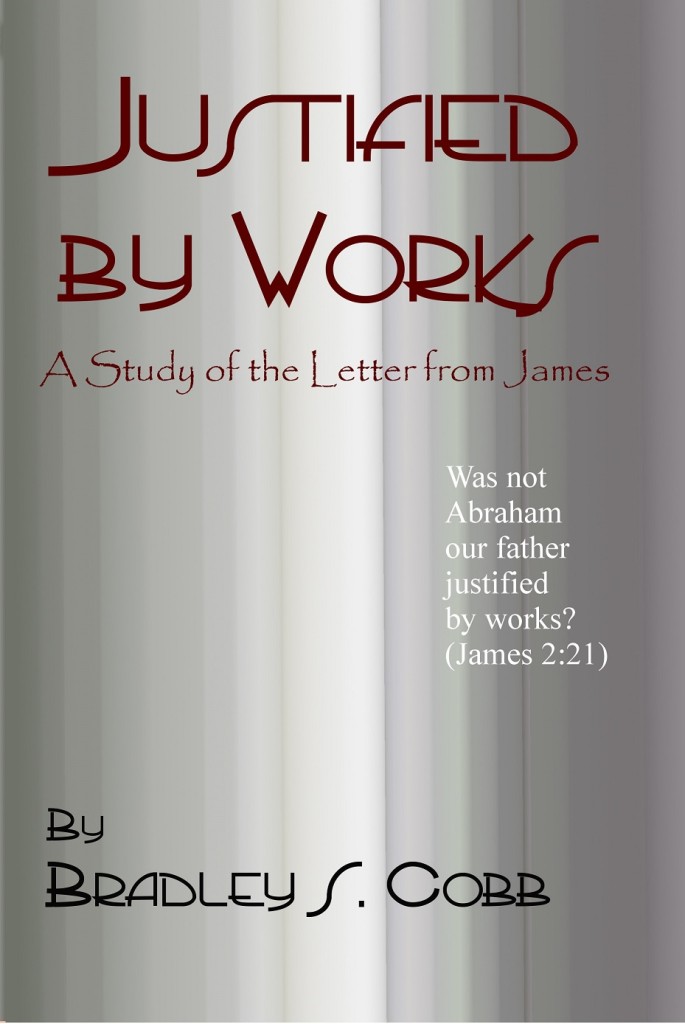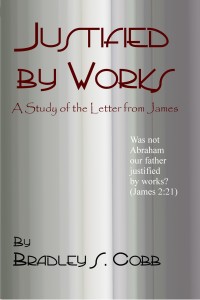Thanks for joining us. For the next several weeks on Sermon Thursday, we will be looking at things that we’re calling The Fundamentals of the Faith. These are things that each Christian needs to know and understand so they can then help to teach others. This week, we deal with the question, What is baptism? Enjoy!
Introduction:
Everyone knows what baptism means! Some folks might say that, but they’d be wrong. Instead, baptism is one of the things—religiously speaking—that is the most misunderstood by people.
Its substance is misunderstood. Some say it is baptism in water, others say it is only baptism in the Holy Spirit, others say both, and still others say it is just being baptized in the word of God.
Its mode (how it is to be done) is misunderstood. Some say sprinkling, some say pouring, some say immersion, some say it is completely mental.
Its subjects (who is supposed to be baptized) are misunderstood. Some say babies, others say believers only, others say adults only, some say Jews-only, others say I can get baptized in your place for you.
Its meaning is misunderstood. Some say it is an outward sign of an inward grace, others say it is to add you to a denomination after you’re saved, still others say that it is an act of obedience which in turn saves you.
With all this confusion about almost every aspect of baptism, can we really know what baptism means? Yes we can, by looking at the Scriptures. Let’s empty our minds of everything we think we know about baptism, and let the Scriptures speak for themselves.
The substance of baptism (what one is to be baptized in).
Baptism is first mentioned in the book of Matthew, chapter three, when John the baptizer comes on the scene.
The Scriptures state that John baptized them in Jordan (Matthew 3:6). This is the Jordan River. John himself clearly stated that he baptized with water (Matthew 3:11). When Jesus was baptized by John, He came “up immediately out of the water” (Matthew 3:16).
It is true that a baptism of the Holy Spirit is also mentioned, but that is one that would be performed by Jesus Christ—and Him only (Matthew 3:11). So, we’ve got two different kinds of baptism mentioned in this chapter. Are they both still valid today? And how can we know?
Ephesians 4:4-6 (which was written at least 25 years after Jesus died) says there is “one Lord, one faith, ONE baptism.” So, by the time that book was written, there was only one valid baptism. So, which one is it?
Acts 8:35-36 (which took place after Jesus died) says that Philip began to preach Jesus to this man. And after hearing Jesus preached to him, the man (a eunuch) said, “See, here is water. What hinders me from being baptized?” Based on what he had been taught by Philip (who had been sent by God), the only baptism that was important to him was baptism in water.
I Peter 3:20-21 (written around the same time as Ephesians) says, “eight souls were saved by water, this corresponds to baptism which now saves you, too” (SENT). The only baptism which matters is baptism in water.
OK, it involves water, but is it sprinkling? Pouring? Being fully submerged under water?
The Mode of baptism (how baptism is to be done).
Just calling something baptism doesn’t make it baptism. Calling a rose a skunk doesn’t make it a skunk. The word baptism has a meaning. But, just to be sure, let’s look at how baptism in water is described in the Bible.
Acts 8:38-39 — And he commanded the chariot to stand still: and they went down both into the water, both Philip and the eunuch, and he baptized him. And when they were come up out of the water, the Spirit of the Lord caught away Philip, that the eunuch saw him no more: and he went on his way rejoicing.
Did you see what I saw there? Baptism requires going into the water and coming out of the water. That’s interesting.
John 3:23 — John was baptizing in Aenon near to Salim, because there was much water there.
So, baptism requires much water. That’s noteworthy to remember.
Romans 6:3-4 — Don’t you know that as many of us as were baptized into Jesus Christ were baptized into His death? Therefore, we are buried with Him in baptism into death…
Interesting. Baptism is described as a burial.
Put these things together:
- Baptism requires much water.
- Baptism requires going into the water and coming out of the water.
- Baptism requires a burial in water.
Just using what the Bible says, we can know that baptism is…
- NOT sprinkling water on someone (this doesn’t require much water, going into the water, nor is it a burial in water).
- NOT pouring water on someone (this doesn’t require much water, going into the water and coming out of the water, nor is it a burial in water).
- Baptism IS being completely submerged, immersed in water. This requires much water, requires going into and coming out of the water, and it is a burial in water.
The Subjects of baptism (who can be baptized).
Ok, we’ve figured out completely from the Bible that baptism must be in water, and that it is being immersed, completely submerged in water and being brought back up; but who is eligible to be baptized?
Again, let’s not guess or use man’s opinion; let’s just look at what the Bible has to say about it.
Mark 16:16 – He that believes and is baptized shall be saved.
This verse makes it pretty clear that the person being baptized must be capable of believing (in Jesus Christ).
Acts 2:38 – repent and be baptized, every one of you.
This makes it pretty clear that whoever is baptized has to be capable of repenting (that is, realizing their sins and turning away from them).
Now I want you to consider something with me.
Babies are incapable of believing in Jesus Christ, and they don’t have the mental capacity to even understand what sin is. Babies are not candidates for baptism at all, ever.
What about small children? They are not old enough to comprehend their own sin, nor mature enough to understand what baptism is.
So, according to the Bible, who is eligible for baptism?
If you believe in Jesus Christ, and are willing to repent of your sins (and mature enough to understand what that means), then you are eligible for baptism. Some people reach that point of maturity earlier than others. If you are an adult, you have reached that point. Teenagers—you want to be treated like an adult? Then you’ve reached that age as well.
The Bible teaches baptism is a burial in water, and the only ones it applies to are those who are old enough to believe in Christ and repent of their sins.
But what is the purpose of baptism?
The Meaning (purpose) of baptism.
I think we can all agree that if the Bible tells us baptism has a specific meaning or purpose, then that should end the discussion.
So, let’s let the Bible speak about the purpose of baptism.
Acts 2:38 – Baptism is “for the remission of sins.” The word “remission” means “forgiveness.” So, baptism is for forgiveness of sins.
Does that mean “because sins have already been forgiven” or does it mean “so that your sins can be forgiven”?
That’s a great question, and easily answered. That verse says that two things (and both of them are commanded) are “for forgiveness of sins”—REPENTANCE and baptism. Acts 8:22 says “Repent, therefore, of this, your wickedness, and pray to God, if perhaps the thought of your heart might be forgiven.”
There’s no getting around it: God will not forgive sin without someone repenting first. So, when Acts 2:38 says repent and be baptized for the forgiveness of sins, it has to mean so that your sins will be forgiven—because God will not forgive someone’s sins unless they repent first.
So, baptism is in order to have your sins forgiven.
Acts 22:16 – Baptism washes away your sins.
A very devout man was praying hard for three days, and God sent another man to him. This man that God sent said, “why are you waiting, get up and be baptized, washing away your sins.”
Baptism is in order to have your sins washed away.
Mark 16:16 – baptism is for salvation. He that believes and is baptized shall be saved. That’s pretty plain.
I Peter 3:21 – baptism does also now save you. There’s not really much comment needed there. The Bible plainly states that baptism saves you.
The only conclusion that you can make from these verses is that you have to be baptized if you want to be saved. There are many other passages we could go to which show this just as clearly.
What About You?
Now, perhaps is the time to ask the most important question—do YOU need to be baptized?
Perhaps you’ll say “I was baptized when I was a baby.” If a baby is baptized, then all that happened was that the baby got wet—because the baby had no sins to wash away in the first place. That baptism doesn’t match what’s in the Bible, and so it wasn’t really baptism.
Maybe you’ll say, “I was baptized when I was younger.” To that, I simply ask this: why were you baptized? If you were baptized because you believed in Jesus and you knew you needed to be baptized in order to have your sins forgiven, then that is great! However, many younger people are baptized because their friends were baptized and they didn’t want to feel left out. Many younger people are baptized because they feel like it is expected of them. Many younger people are baptized without really understanding why they were doing it.
If any of these describe you, then were you really baptized like the Bible says to be baptized?
Maybe you’ll say, “I was baptized in the Baptist Church” or some other religious group. I have no doubt that you did it with the best of intentions. In fact, I praise you for wanting to follow God’s will. However, I have to ask you this: were you baptized for the reasons that the Bible gives?
- Were you baptized so that your sins could be washed away?
- Were you baptized for the purpose of being saved?
- Or did you believe you were saved before you were baptized?
You see, while these religious groups have many things that are praiseworthy, a lot of them say that baptism doesn’t save you.
But the Bible says it does.
They say that baptism is so you can be part of the Baptist Church or the Methodist Church or whatever church AFTER you’re saved.
The Bible says that baptism is what saves you—only one of them can be right.
So, the question that you have to honestly, sincerely ask yourself is this: If I was baptized for the wrong reasons, where does that leave me?
I don’t know about you, but that is not a predicament I’d want to be in. The Bible speaks of a group of men who had been baptized, and thought their baptism was just fine. However, they discovered that their baptism wasn’t the right baptism. They were then baptized properly, having their sins forgiven. You can read about them in Acts 19.
Conclusion:
My friends, don’t let there be any doubt about your salvation. Don’t let there be any doubt about whether you were baptized for the right reasons. Right now, take care of it by coming to God, believing in Jesus Christ, leaving your sins behind, and being baptized according to the Scriptures. When you do that, you don’t have to ever doubt it.
Some of you might be thinking, “I’m not sure if I need to be baptized properly or not.” To you, I say this: do it. Do it to be sure.
It could be that your baptism was proper in the first place, and you will just be getting wet—but you will have a pure, confident conscience. But it could also be that you had good reason to doubt—and this would save your soul. Please, come be baptized now!

